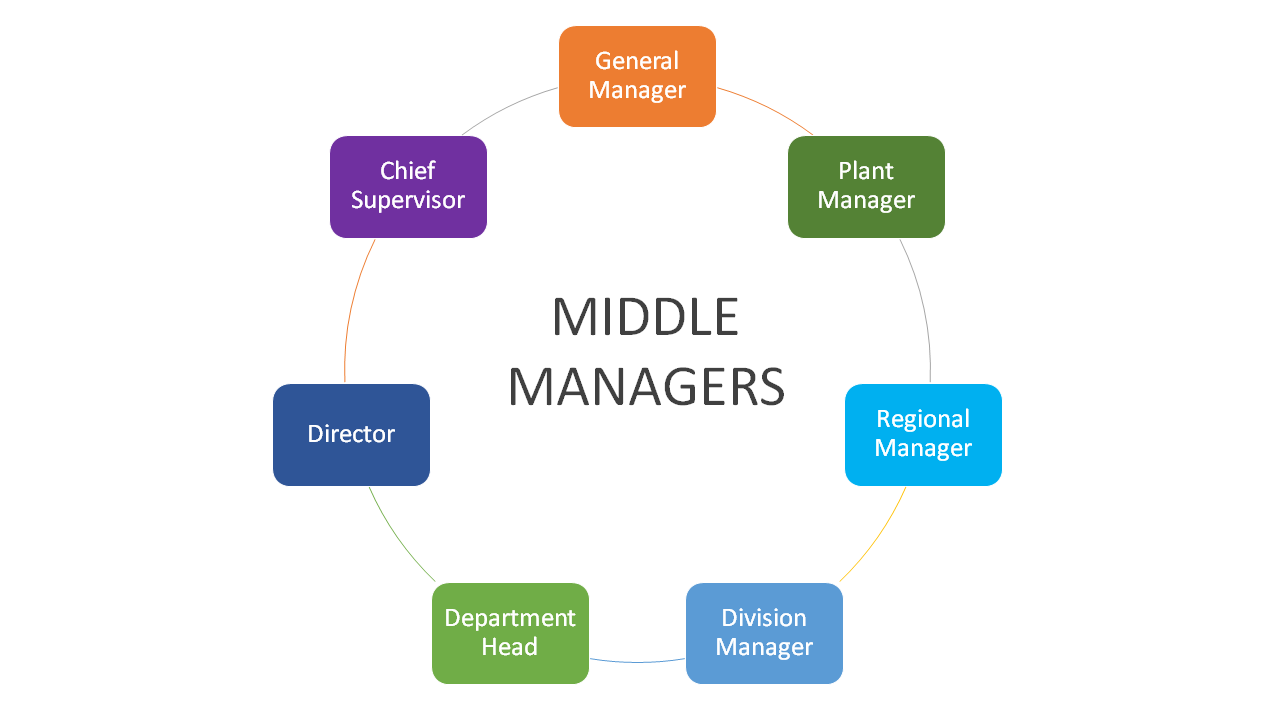

The Modern Middle Manager: The Linchpin of Workforce Success & How Quinn Vietnam Manpower is Building Stronger Teams
- trienkhaiweb
- 10 July, 2024
- 0 Comments
In today’s rapidly changing business landscape, middle managers play a pivotal role in the success and sustainability of any organization. Often referred to as the “linchpin” of a company, they bridge the gap between upper management’s strategic vision and the day-to-day operations of the workforce. But who exactly are middle managers, what skills do they need, and how can their capabilities be enhanced? Quinn Vietnam Manpower, a leader in labor export and workforce solutions, is exploring the evolving landscape of middle management and the strategies for empowering these essential team members.
I. Defining the Modern Middle Manager
While traditionally seen as occupying a middle tier within the organizational hierarchy, the role of the middle manager is far more dynamic. They report to senior executives while overseeing lower-level managers and employees. Beyond titles like department head, branch manager, or regional director, their responsibilities now encompass a wide range of functions critical to organizational success.
II. The Multi-Faceted Role of Middle Management
-
The Right Hand of Leadership: Middle managers act as the operational backbone for executives, ensuring that strategic goals are translated into actionable plans. They communicate the company’s vision, implement strategies, and report progress back to leadership. Effective communication, both upwards and downwards, is a hallmark of their success.
-
Leading and Mentoring the Workforce: Beyond management, middle managers are leaders and mentors. They assign tasks, guide teams, and foster a positive work environment. Performance management, addressing HR concerns within their departments, and recognizing employee achievements are key aspects of this role.
-
The Crucial Bridge Between Vision and Action: The modern middle manager serves as a translator, converting high-level strategies into practical, achievable steps. This requires problem-solving skills, adaptability, and a deep understanding of both the big picture and the details of execution. By identifying roadblocks and communicating feedback, they ensure alignment between the workforce and organizational goals.

III. The Evolving Job Description of Middle Managers
- Translating Strategy into Actionable Plans: Taking broad directives from leadership and crafting detailed plans that can be implemented by their teams.
- Performance Monitoring and Enhancement: Regularly reviewing team performance, identifying areas for improvement, and implementing strategies to boost productivity.
- Resource Allocation and Task Delegation: Assigning the right tasks to the right people, ensuring that resources are used efficiently, and deadlines are met.
- Fostering a Culture of Continuous Improvement: Encouraging innovation, recognizing employee contributions, and promoting a positive, collaborative work environment.
- Problem-Solving and Conflict Resolution: Addressing internal challenges, finding solutions, and ensuring that operations run smoothly.
- Communication and Reporting: Conveying information to both upper management and team members, ensuring everyone is informed and aligned with company goals.

IV. Key Competencies for Middle Management Success
- Strong Communication Skills: The ability to clearly articulate ideas, listen actively, and provide constructive feedback is crucial.
- Decisive Leadership: Making informed decisions under pressure, balancing various factors, and taking responsibility for outcomes.
- Motivation and Inspiration: Inspiring teams to achieve their best, fostering a sense of purpose, and recognizing individual and team accomplishments.
- Organizational Agility: Adapting to change, managing multiple priorities, and ensuring that projects stay on track.
- Emotional Intelligence: Understanding and managing emotions, both their own and those of their team members, to build stronger relationships and promote collaboration.
V. Quinn Vietnam Manpower: Empowering Middle Managers
Quinn Vietnam Manpower recognizes the importance of middle management in driving workforce success. Through tailored training programs, mentoring initiatives, and a focus on skill development, Quinn is dedicated to equipping middle managers with the tools they need to thrive in the modern workplace. By investing in this critical layer of leadership, Quinn helps organizations maximize their human capital and achieve long-term growth.
Related articles
Employee Empowerment with Quinn Vietnam Manpower
In today’s dynamic business landscape, organizations are increasingly recognizing the importance of employee empowerment as a key driver of success. Quinn Vietnam Manpower, a leading provider of manpower solutions in Vietnam, understands that empowered employees are more engaged, productive, and committed to organizational goals. This article delves into the concept of employee empowerment, exploring its…
Quinn Vietnam Manpower’s 5 Steps to Successful Coaching in 2025
In today’s dynamic business environment, maximizing your manpower’s potential is crucial for success. Effective coaching programs are key to unlocking this potential, fostering employee growth, and driving organizational performance. Quinn Vietnam Manpower, a leading provider of manpower solutions, presents a comprehensive guide to successful coaching in 2025. Whether you’re leading coaching sessions yourself or partnering…
Functional Skills: A Guide for Quinn Vietnam Manpower’s Workforce in 2025
In today’s competitive job market, possessing strong functional skills is more critical than ever. For Quinn Vietnam Manpower, equipping our manpower resources with these essential skills is key to their success and the success of our partner businesses. This comprehensive guide explores the importance of functional skills, particularly in Math and English, and how Quinn…
Level Up Your Workforce: Gamification Strategies for Quinn Vietnam Manpower
In the competitive landscape of Vietnam’s manpower industry, attracting, engaging, and retaining top talent is more critical than ever. Quinn Vietnam Manpower recognizes the power of innovative solutions, and gamification is emerging as a game-changer in the realm of human resources. By integrating game mechanics and elements into various HR processes, Quinn Vietnam Manpower can…
3 Communication Skills Every Manager Needs to Thrive
In today’s rapidly evolving business landscape, effective communication skills are more critical than ever for managers. Whether you’re a seasoned leader or newly promoted, honing your communication abilities can significantly impact your team’s performance, morale, and overall success. This article delves into three essential communication skills every manager needs to master in 2025 and highlights…
Harnessing the Power of Insights with Quinn Vietnam Manpower
In the dynamic landscape of 2025, where businesses face unprecedented challenges and opportunities, the ability to gain profound insights is more critical than ever. For project management (PM) in Vietnam, this rings especially true. Quinn Vietnam Manpower, a leading provider of manpower solutions, recognizes the crucial role of insights in driving project effectiveness and organizational…







